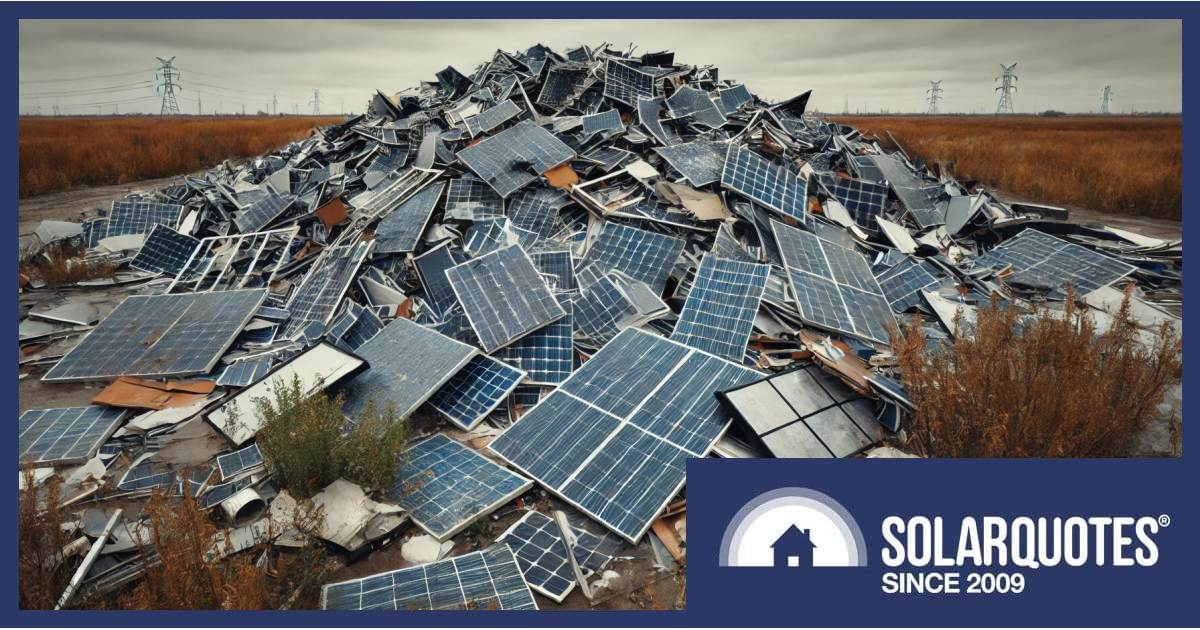
A solar panel recycling, reuse and recovery pilot scheme in Queensland was officially launched in Redlands yesterday.
The program appears to have its roots in an initiative announced last year, the first stage of which was to identify participants and locations to divert end-of-life rooftop solar panels from landfill. The project received further funding from Queensland’s Department of Environment, Science and Innovation in April this year, and after additional support from the Department of Energy and Climate, the pilot was expanded to include large-scale PV projects.
In partnership with the Smart Energy Council, the scheme will explore the viability of recycling and reuse of unwanted solar panels from households and solar farms in the state; with view to using the data and insights to help inform policies for a national solution to PV panel waste.
There will be a total of 15 locations participating in the program and six solar panel collection sites have been confirmed so far – in Capalaba, North Lakes, Gold Coast, Rockhampton, Toowoomba and Townsville.
“Leading The Way” In Solar – And PV Recycling
Queensland tops the nation for rooftop solar power uptake in terms of system numbers, with 1 million+ small-scale systems installed to date. The state also leads in saturation according to the Australian Photovoltaic Institute (APVI), with an estimated 51.3% of semi-detached and stand-alone homes sporting solar panels. Added to the small-scale rooftop installation tally are the millions of panels that have been installed in solar farms across the state.
“Queensland is leading the way in rooftop solar penetration, and now we’re the leaders in the recycling of those systems too,” said QLD Minister for Energy and Clean Economy Jobs Mick de Brenni. “By turning old solar panels into valuable resources, Queensland is powering up the circular economy, helping to build jobs, innovation, and a cleaner future.”
The firms participating in the pilot are:
- Rexel – which has experience in electronics recycling through a facility designed to recover valuable materials from electrical accessories.
- Resolarcycle – whose mission is to ensure working panels find a new home, and all non-working panels are recycled responsibly.
- Solar Shift – repurposes unwanted solar equipment by making it available for export to developing countries.
The Smart Energy Council will be working with local councils for the program’s rollout.
“It’s exciting to get this important nation leading work started,” said Smart Energy Chief Executive John Grimes. “The recycling ecosystem is a critical part of securing the renewable energy transition into the future and provide insurance against future material limits like copper and silver.”
According to this page on the Smart Energy Council website about the pilot, the target for is 30,000 modules; with just over 1,300 collected so far. That seems pretty modest given the scale of the project, so perhaps the target will be boosted.
A Million Tonnes Of Solar PV Waste In The Pipeline
Good quality solar panels should have a service life of at least 25 years. Some premium solar panels now come with warranties of up to 40 years. While it remains to be seen if they’ll last this long, testing of a 31 year old system in France that used Kyocera modules was encouraging; indicating the panels were still producing 79.5% of their initial power at that point.
But not all solar panels are of good quality and Australia has seen its share of crappy PV modules installed that won’t last the distance. There’s also the issue of system upgrades, where panels with significant service life left in them may be discarded.
A scoping study from the Australian Centre of Advanced Photovoltaics (ACAP) noted the projected cumulative volume of decommissioned panels in Australia is to reach 1 million tonnes by 2035, and as much as 100,000 tonnes of PV waste will be generated every year by the end of the decade. The bulk of the waste won’t be from solar farms initially – it’s estimated more than 80 per cent of the decommissioned solar panels by 2030 will come from small-scale systems.

 RSS - Posts
RSS - Posts



The author refers to an earlier initiative. The press release for that one is dated 5 March 2023 and refers to an earlier $1.1 billion Recycling and Jobs Fund that’s driving Queensland’s zero waste transition.
All those government employees and consultants writing all those press releases and all politicians making all those announcements.
And in a year and a half 1300 modules have been collected. Strangely no mention of what has happened to those 1300 modules.
Sounds like another episode of Utopia in the making.